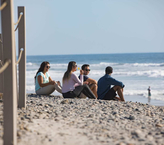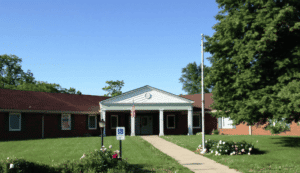How To Help An Alcoholic Parent
Does My Parent Have A Drinking Problem?
Alcohol use disorders, more commonly known as alcoholism, affect approximately 17.6 million Americans. Alcohol is by far the most commonly abused substance in the United States. Alcoholism can severely and negatively impact an individual’s personal, professional, social, and financial life. Unfortunately, alcoholism doesn’t just impact the alcoholic. It can also cause crippling effects on the alcoholic’s loved ones, especially their children.
Alcoholism can lead to emotional, physical, mental, and financial abuse and neglect of children of all ages. This is especially true of children who still live with or near their alcoholic parent. Alcoholism can also cause a parent to act in ways that are extremely embarrassing, or even humiliating, to their children and themselves.
Even when alcoholism doesn’t lead to severe harm or distress it often leaves children feeling unloved, uncared for, and unimportant. Many children of alcoholics struggle with self-esteem issues as well as issues with the alcoholic parent. It isn’t fair that children have to take on the role of an adult in the family, which can lead to bitterness and resentment. What causes the most stress for many children of alcoholics is the constant fear and worry. They may have thoughts like “Is my parent going to come home safe? What kind of mood are they going to be in? Are they ever going to find help?”
One of the most common issues that children of alcoholics struggle with is blaming themselves or thinking that they could be doing more for their parent. This is especially true when the alcoholic drunkenly (and falsely) blames that child to their face. The guilt can be overwhelming for some. This is both incredibly untrue and unfair. No one is responsible for someone else’s drinking problem.
Some children have dealt with their parent’s alcoholism since the time they were born. Others may not notice it until many years later, perhaps when their parent developed the condition. Many individuals don’t become alcoholics until later in life; in fact, alcohol abuse is a growing problem among senior citizens.
Try Online Therapy

Get professional help from an addiction and mental health counselor from BetterHelp by phone, video, or live-chat.
Take the Quiz. Get Matched. Begin Therapy.

Online therapy can help you with long term addiction support. Connect with a therapist from Talkspace anytime, anywhere.
Get matched with a therapist now.
Paid Advertising. We may receive advertising fees if you follow links to promoted online therapy websites.
Signs Of An Alcoholic Parent
Alcohol addiction impacts everyone differently. Some alcoholics exhibit many signs, while others exhibit very few (this is especially true of high-functioning alcoholics). But some signs are common to many, if not most, alcoholics. Here are some of the most common:
- Blackouts and memory loss
- Irritability and mood swings
- Excusing drinking and bad behavior
- Prioritizing drinking over other obligations
- Isolation from friends and family members
- Increasing difficulties at work or with finances
- Drinking alone or secretly
- Frequent hangovers
- Changes in appearance, behavior, and social circle
How Do I Approach My Alcoholic Parent About Their Problem?
You cannot force someone to change. You cannot make them quit drinking or even drink less. You cannot make them go to rehab. You can’t even make them see that they have a problem. The best thing you can do is to bring to their attention to the fact that you think they have a problem.
Featured Centers Offering Treatment For Alcohol Addiction


If you are concerned that your parent may have a problem with alcoholism, you might be terrified to bring it up to them. You might fear them getting angry, yelling at you, or getting violent. You may feel they will make a scene in front of others, embarrass you, move out, or either use more or more secretly. These are all things that have happened to others, but they don’t have to happen to you. Included below are a list of guidelines that may help you improve the outcome of any conversation with your parent. Remember that, unless violence is a concern, the risks of having this conversation are generally far outweighed by the potential benefits. If you are genuinely concerned about a violent reaction, however, it is best to not have the conversation alone. Always have someone with you.
Check if my insurance covers rehab
Addiction Center is not affiliated with any insurance.
- Remember that the point of the conversation is not to convince them that they have a problem but to let them know that you are concerned that they might.
- Don’t initiate the conversation when your parent is intoxicated.
- Don’t initiate the conversation when you are intoxicated.
- Unless violence is an issue, establish a time to have the conversation one-on-one.
- Start the conversation by saying that you’re doing it because you care about them.
- Continually emphasize that you’re having this conversation because you’re concerned about their well-being.
- Always come from the perspective of yourself, not a general perspective. Use statements like “I am concerned by how much you are drinking” or “I think you are putting yourself at risk” rather than “You have a problem” or “You’re throwing your life away.”
- List behaviors and incidents that you’ve observed and why they concern you.
- If you feel it may benefit the conversation, discuss how their behaviors have impacted you and how that has hurt you.
- Make sure the discussion is a 2-way conversation so that they don’t feel cornered or get defensive. A good way to do this is to ask open-ended questions.
- Keep on the main point. Don’t get sidetracked with speculation, judgment, or an explanation for why.
- If the person denies there is a problem, try to get them to agree to have another conversation in the future.
Looking for a place to start?
Join the thousands of people that have called a treatment provider for rehab information.
Free and confidential
Available 24/7
Access to professional treatment
What Do I Do If My Alcoholic Parent Refuses Help?
Unfortunately, there aren’t many options available to you for your parent if they refuse help. If you are underage and your parent’s alcoholism is causing them to physically abuse or neglect you, then you can (and probably should) report them to a family member or school or law enforcement official. You can turn to friends and family members of your parent as well to see if you can get them to help convince your parent to seek help. You can also seek out the services of a professional interventionist, medical professional, clergyperson, or therapist to help your parent see the light.
There are, however, many options that you can take for yourself. Just because your parent is unwilling or unable to change does not mean that you cannot dramatically improve your own life, emotional well-being, and physical health. There are many resources and support groups out there that specialize in helping the children and other family members of alcoholics. These resources and support groups can provide you with a great deal of help for yourself, including emotional support, college scholarships, help getting over grief, and tips to getting through daily life.
What Resources Are Available To Me?
Al-Anon
Al-Anon is the largest and most well-known support group for families of alcoholics. Modeled after Alcoholics Anonymous (AA), Al-Anon includes a 12-Step program for members to follow to help them cope with their family member’s alcoholism. Al-Anon holds regular meetings in all 50 states and in many countries around the world.
Nar-Anon
Nar-Anon is based on the the Al-Anon model, only Nar-Anon is complementary to Narcotics Anonymous. Although Nar-Anon is primarily focused on helping those whose families have been impacted by drug use, they also offer support for family members of those impacted by alcoholism.
SMART Recovery™
SMART Recovery™ is one of the leading alternatives to AA and is especially popular with alcoholics that have issues with AA’s spiritual focus. While SMART Recovery™ is focused on alcoholics, the organization also has resources for friends and family as well.
Common Questions About Rehab
Co-DA
Co-Dependents Anonymous is a support group that is dedicated to helping those who struggle with co-dependent relationships, both those that have been impacted by alcohol and drug use and those who have not. Co-DA is a 12-step group where members support each other as they try to not only survive but thrive.
Schools
Schools of all levels, from elementary schools to universities, have numerous resources available to help students cope with the substance abuse of their parents.
Mental Health Professionals
It may be beneficial for you to seek help from a mental health professional such as a psychiatrist, psychologist, or social worker. They may be able to help you understand, cope with your feelings about, and improve your mental state over your parent’s situation and the impacts that it has had on you.
The Internet
There are hundreds of websites and organizations with websites on the Internet that are dedicated to helping the families of alcoholics. While some are significantly more helpful than others, many will be able to provide information, resources, and even communities of members who can provide a great deal of support.
Get Help Now
If your parent is struggling with alcoholism or other substance abuse issues, help is out there. Contact a treatment provider today.
Try Online Therapy

Get professional help from an addiction and mental health counselor from BetterHelp by phone, video, or live-chat.
Take the Quiz. Get Matched. Begin Therapy.

Online therapy can help you with long term addiction support. Connect with a therapist from Talkspace anytime, anywhere.
Get matched with a therapist now.

Begin making positive changes with Online-Therapy.com. Quality online therapy, from the comfort of home.
Answer a few questions to get started.
Paid Advertising. We may receive advertising fees if you follow links to promoted online therapy websites.
Published:
Author
Jeffrey Juergens

-
Jeffrey Juergens earned his Bachelor’s and Juris Doctor from the University of Florida. Jeffrey’s desire to help others led him to focus on economic and social development and policy making. After graduation, he decided to pursue his passion of writing and editing. Jeffrey’s mission is to educate and inform the public on addiction issues and help those in need of treatment find the best option for them.
- More from Jeffrey Juergens
Reviewed by Certified Addiction Professional:
Theresa Parisi

Theresa Parisi is a Certified Addiction Professional (CAP), Certified Behavioral Health Case Manager (CBHCM), and International Certified Alcohol and Drug Counselor (ICADC) with over 12 years of experience in the addiction treatment field.
- More from Theresa Parisi
Sources


Recovery Starts Today
Call Now For Addiction Support



Newport Institute for Young Adults
Monticello , MN


Recovery Centers of America at St. Charles
St. Charles , IL

Newport Academy – Teen Treatment Center
Saint Cloud , MN

Banyan Treatment Centers – Chicago
Chicago , IL

Timberline Knolls Treatment Center for Women
Lemont , IL

Banyan Treatment Centers – Illinois
Gilman , IL


Recovery Centers of America at Indianapolis
Indianapolis , IN

Boca Recovery Center – Indiana
Bloomington , IN

Options Behavioral Health Hospital
Indianapolis , IN

Ridgeview Behavioral Hospital
Middle Point , OH

